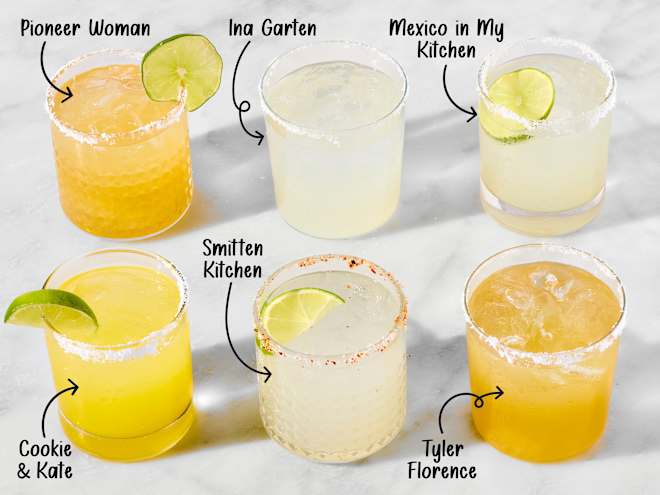The Ultimate Guide to GMP Certification for NHP Manufacturers
GMP Certification | GMP Certification in Canada - IAS Canada

So, you’re in the natural health product (NHP) game, crafting supplements, herbal remedies, or maybe those trendy superfood powders everyone’s raving about. You’ve got the passion, the vision, and probably a killer recipe for a turmeric-ginger shot. But here’s the thing: if you want to play in the big leagues, GMP certification is your ticket. It’s not just a fancy acronym to slap on your website—it’s the backbone of trust, quality, and market access. Let’s break it down, step by step, and figure out why GMP certification matters, how to get it, and what it means for your business. Ready? Let’s go.
What’s GMP Certification, Anyway?
Good Manufacturing Practices, or GMP, are a set of guidelines ensuring your products are consistently produced with quality, safety, and cleanliness in mind. Think of it like the rulebook for running a kitchen that serves millions—except instead of Michelin stars, you’re earning the trust of regulators, retailers, and customers. For NHP manufacturers, GMP certification means your facility, processes, and products meet strict standards set by bodies like Health Canada or the FDA.
Why does this matter? Because nobody wants a supplement contaminated with who-knows-what or a capsule that’s more filler than active ingredient. GMP certification tells the world you’re legit. It’s your proof that you’re not cutting corners, even when nobody’s watching.
Why You Can’t Skip GMP Certification
You might be thinking, “My products are natural, so why do I need all this red tape?” Fair question. But here’s the reality: the NHP industry is under a microscope. Consumers are savvy—they’re reading labels, researching brands, and demanding transparency. And regulators? They’re not messing around. Without GMP certification, you’re risking:
- Market access: Major retailers like Whole Foods or Amazon won’t touch your products without it.
- Consumer trust: People want to know their probiotics aren’t made in someone’s garage.
- Legal trouble: Non-compliance can lead to fines, recalls, or even a shutdown.
Plus, let’s be real—getting GMP certification isn’t just about dodging trouble. It’s about building a brand that lasts. You know what? When customers see that GMP seal, they feel confident popping your capsules or mixing your powders. That’s priceless.
The Emotional Weight of Quality
Let’s take a quick detour. Imagine you’re a consumer picking up a bottle of fish oil. You’re not just buying omega-3s; you’re investing in your health, maybe even your family’s. Now, if that bottle’s from a GMP-certified facility, you’re probably breathing easy. But if it’s from some sketchy operation with no oversight? That’s a hard pass. As an NHP manufacturer, you’re not just making products—you’re carrying the weight of people’s trust. GMP certification is how you honor that.
How to Get GMP Certification: The Nuts and Bolts
Alright, let’s get practical. Getting GMP certification isn’t a walk in the park, but it’s doable. Here’s the roadmap:
- Understand the Requirements
Different regions have their own GMP standards—Health Canada, FDA, or EU regulations, for example. Start by researching which apply to you. Health Canada’s NHP regulations, for instance, emphasize site licensing and quality assurance. Get familiar with the jargon: SOPs (Standard Operating Procedures), batch records, and sanitation protocols.
- Audit Your Facility
Take a hard look at your setup. Is your equipment clean and calibrated? Are your raw materials stored properly? You’ll need to document everything—yes, everything. If your facility’s a bit chaotic, don’t panic. This is your chance to tighten the ship.
- Train Your Team
Your staff needs to live and breathe GMP principles. From the person mixing ingredients to the one packing boxes, everyone’s on the hook for quality. Invest in training programs—online courses, workshops, or even consultants. It’s worth it.
- Document Like Your Life Depends on It
GMP certification loves paperwork. You’ll need SOPs for every process, records of every batch, and proof of employee training. It’s tedious, but it’s your golden ticket. Pro tip: use software like MasterControl or Qualio to keep things organized.
- Get Inspected
Once you’re ready, a third-party auditor or regulatory body will visit your facility. They’ll check your processes, poke around your storage areas, and ask tough questions. Nail this, and you’re golden. Flub it, and you’ll get a list of corrective actions.
- Maintain Compliance
GMP certification isn’t a one-and-done deal. You’ll need regular audits to keep it. Think of it like renewing your driver’s license—stay sharp, and you’ll pass every time.
Sounds like a lot, right? It is. But here’s the flip side: every step you take toward GMP certification makes your business stronger. You’re not just checking boxes; you’re building a foundation for growth.
The Cost of GMP Certification (And Why It’s Worth It)
Let’s talk money. Getting GMP certification isn’t cheap—expect to spend anywhere from $10,000 to $50,000 upfront, depending on your facility’s size and readiness. Consultants, training, and audits add up. And don’t forget ongoing costs like maintenance and re-certification.
But hold up—before you clutch your wallet, consider this: GMP certification opens doors. It’s your key to international markets, premium retailers, and partnerships with distributors. Plus, it reduces the risk of costly recalls or lawsuits. In the long run, it’s not an expense; it’s an investment.
A Quick Tangent: The Seasonal Connection
Here’s something to chew on. The NHP industry thrives on trends—think immunity boosters in winter or detox blends in January. GMP certification gives you a leg up during these seasonal spikes. Why? Because retailers prioritize compliant brands when stocking shelves for flu season or New Year’s resolutions. It’s like having a VIP pass to the hottest club in town.
Common Pitfalls (And How to Dodge Them)
Nobody’s perfect, and the road to GMP certification has its share of potholes. Here are a few to watch out for:
- Sloppy Documentation
Missing records or incomplete SOPs are a fast track to failure. Double-check everything. Better yet, triple-check.
- Undertrained Staff
If your team doesn’t know GMP inside out, your audit’s toast. Invest in training early and often.
- Cutting Corners
Tempted to skip a step to save time or money? Don’t. Regulators can smell shortcuts from a mile away.
- Ignoring Updates
GMP standards evolve. Stay on top of changes through industry newsletters or groups like the Natural Products Association.
The good news? Most of these are avoidable with a little planning. You’ve got this.
The Bigger Picture: GMP Certification and Your Brand
Let’s zoom out for a second. GMP certification isn’t just about compliance—it’s about your story. In a crowded market, where every brand’s shouting about “all-natural” this and “organic” that, GMP certification sets you apart. It’s your way of saying, “We don’t just talk the talk; we walk the walk.”
Think about it: when a customer picks up your product, they’re not just buying a supplement. They’re buying peace of mind. They’re trusting you with their health, their goals, maybe even their dreams of feeling better, stronger, or more vibrant. GMP certification is how you earn that trust, bottle by bottle.
A Word on Industry Trends
Quick side note—have you noticed how NHPs are blowing up on social media? TikTok’s full of influencers blending green powders or popping collagen gummies. GMP certification gives you credibility in this space. When an influencer partners with you, they’ll want to know your products are legit. Same goes for retailers jumping on the wellness bandwagon. It’s all connected.
Wrapping It Up: Your Next Steps
So, where do you go from here? If you’re new to GMP certification, start small. Read up on your region’s regulations—Health Canada’s site is a goldmine for Canadian manufacturers. If you’re further along, book a consultant or schedule a pre-audit to spot gaps. And if you’re already certified? Keep those standards tight. Your customers—and your bottom line—will thank you.
GMP certification isn’t just a hurdle; it’s a launchpad. It’s your chance to build a brand that’s trusted, respected, and ready to grow. Sure, the process can feel like climbing a mountain, but the view from the top? Worth every step. So, what are you waiting for? Get out there and make quality your calling card.

















![How to make Developer Friends When You Don't Live in Silicon Valley, with Iraqi Engineer Code;Life [Podcast #172]](https://cdn.hashnode.com/res/hashnode/image/upload/v1747360508340/f07040cd-3eeb-443c-b4fb-370f6a4a14da.png?#)



![[Virtual Event] Strategic Security for the Modern Enterprise](https://eu-images.contentstack.com/v3/assets/blt6d90778a997de1cd/blt55e4e7e277520090/653a745a0e92cc040a3e9d7e/Dark_Reading_Logo_VirtualEvent_4C.png?width=1280&auto=webp&quality=80&disable=upscale#)
























































